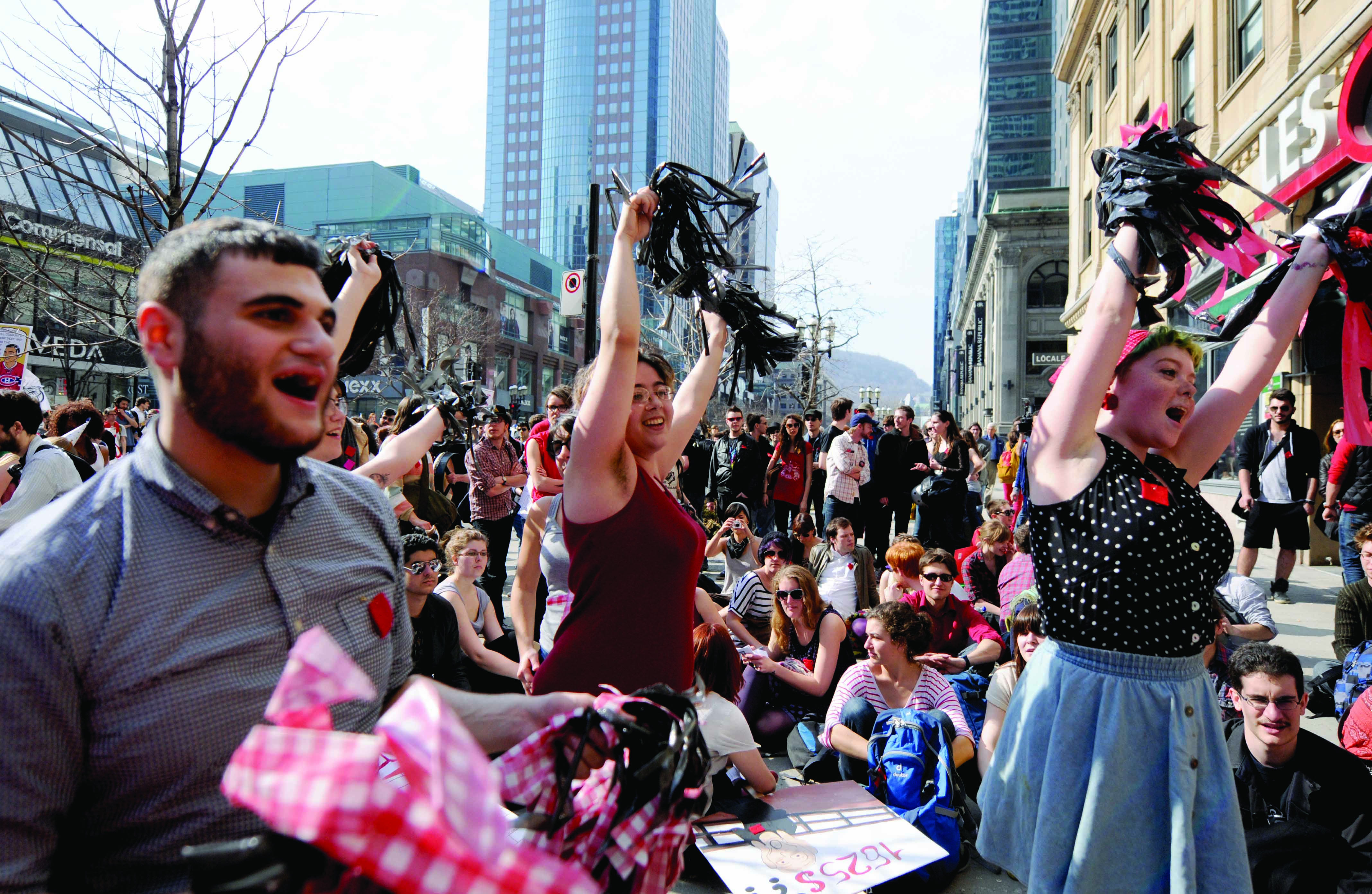The costs of this year’s student strike movement is the centre of attention yet again as the l’Université du Québec à Montréal claims the protests associated with the university amounted to $20 million and the provincial government estimates that overall costs for all post-secondary institutions are at $40 million and counting.
Both claims, made last week by the university’s rector Claude Corbo and Pierre Duchesne, the minister of Higher Education, Research, Science and Technology, respectively, attracted attention and criticism.
Martine Desjardins, president of the Fédération étudiante universitaire du Québec, was critical of the figures provided by UQAM and Duchesne.
“We have information that says it’s not 20 or 40 million dollars,” she said in an interview with The Concordian, “But that the strike cost the government over 150 million dollars, because we explain it to include costs for teachers, for assistants, also for people who work in the libraries. There are a lot of costs involved.”
“Of course the strike has cost a lot,” Desjardins added. “But I doubt UQAM has $20 million only due to the strike, actually I expect it to be more. They’re trying to get more and more money from the government because they’re a little bit shocked that there are no more tuition fee hikes anymore.”
For Concordia University the estimated costs came to a much lower figure of $226,755.39, all for additional security costs according to Chris Mota, university spokesperson.
“I know at other universities there was physical damage and there were other issues but at Concordia it was only the additional security,” she said.
In terms of security, McGill University devoted $275,233.39 of its budget for additional security while UQAM spent $841,414.95 and the Université de Montréal spent the least at $151,043.19 for the winter semester.
Outside of the education sector, other groups bore heavy costs from the protests as well. While the Service de police de la Ville de Montréal refuses to release any estimates of damage without a formal request filed under the Access to Information Act, the overtime pay for SPVM employees from February to June alone cost a hefty $7.3 million according to figures obtained by Radio-Canada earlier this year.
Steve Siozios, president of the Crescent Street Merchant’s Association, told The Concordian that they estimate their losses to be an average loss per business of 20 per cent at the height of the protests.
“We lost 20 per cent in April, May and June,” he said. “But it’s also more extensive than that because it kind of killed the whole summer. It had a very negative effect on merchants.”
Siozios also explained how a false perception of violence and danger in the downtown core scared people from outside of the city away from visiting.
“There were incidents, but it wasn’t as bad as they thought it was,” he said. “All of it has led to a very bad year so far. It’s closed down businesses already and by year end it’s going to close down more.”
Desjardins, meanwhile, believes the blame for costs lie firmly with the Liberal government, which is currently the official opposition in Quebec.
“They should be ashamed. They should be the ones going out and explaining themselves, why did they take so long to sit at the table and negotiate with us?” she said. “It should have been done earlier and I’m pretty sure we could have achieved an agreement at that time, in April, in March, but they waited for a general election and I think they should be ashamed of themselves.”
“They should be in front of the population and answering questions because we have been losing a lot of money over their way of handling this crisis,” added Desjardins.
